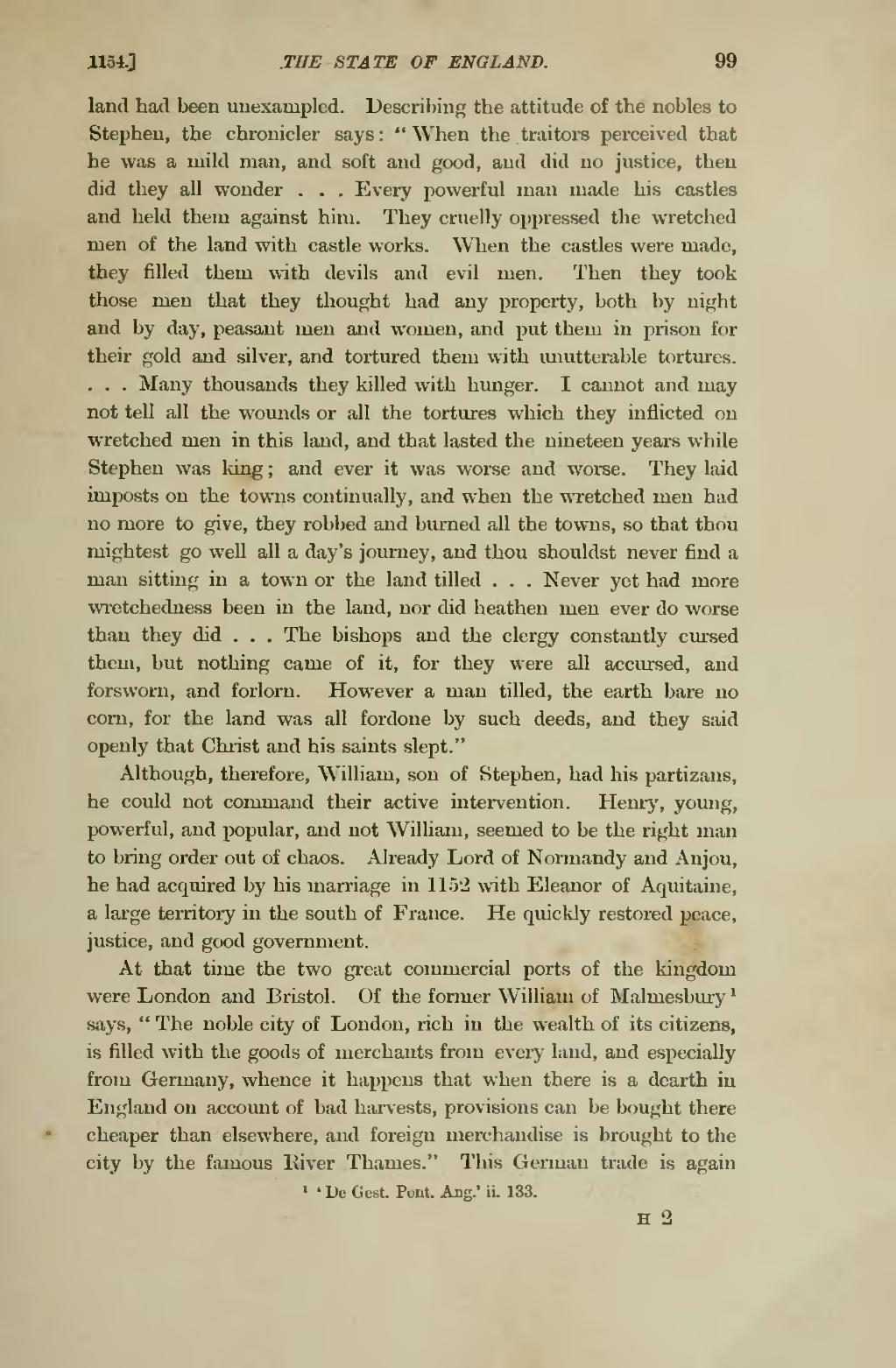land had been unexampled. Describing the attitude of the nobles to Stephen, the chronicler says: "When the traitors perceived that he was a mild man, and soft and good, and did no justice, then did they all wonder ... Every powerful man made his castles and held them against him. They cruelly oppressed the wretched men of the land with castle works. When the castles were made, they filled them with devils and evil men. Then they took those men that they thought had any property, both by night and by day, peasant men and women, and put them in prison for their gold and silver, and tortured them with unutterable tortures.... Many thousands they killed with hunger. I cannot and may not tell all the wounds or all the tortures which they inflicted on wretched men in this land, and that lasted the nineteen years while Stephen was king; and ever it was worse and worse. They laid imposts on the towns continually, and when the wretched men had no more to give, they robbed and burned all the towns, so that thou mightest go well all a day's journey, and thou shouldst never find a man sitting in a town or the land tilled ... Never yet had more wretchedness been in the land, nor did heathen men ever do worse than they did ... The bishops and the clergy constantly cursed them, but nothing came of it, for they were all accursed, and forsworn, and forlorn. However a man tilled, the earth bare no corn, for the land was all fordone by such deeds, and they said openly that Christ and his saints slept."
Although, therefore, William, son of Stephen, had his partizans, he could not command their active intervention. Henry, young, powerful, and popular, and not William, seemed to be the right man to bring order out of chaos. Already Lord of Normandy and Anjou, he had acquired by his marriage in 1152 with Eleanor of Aquitaine, a large territory in the south of France. He quickly restored peace, justice, and good government.
At that time the two great commercial ports of the kingdom were London and Bristol. Of the former William of Malmesbury[1] says, "The noble city of London, rich in the wealth of its citizens, is filled with the goods of merchants from every land, and especially from Germany, whence it happens that when there is a dearth in England on account of bad harvests, provisions can be bought there cheaper than elsewhere, and foreign merchandise is brought to the city by the famous River Thames." This German trade is again
- ↑ 'De Gest. Pont. Ang.' ii. 133.
